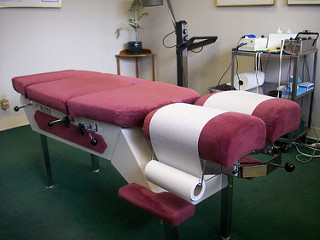Is Medicare fraud really that b ig of a problem? After all, doesn’t fraud exist in almost every sector of the economy? Why focus so much energy on one issue? As recently filed charges in one case show, Medicare fraud is an enormous problem that costs our government billions of dollars every year. Stealing from the government is, in essence, stealing from every single taxpayer. Medicare fraud diverts money from those who truly need and deserve health care services and puts the money in the pockets of wrongdoers. At the same time, there is also very specific, personal harm to patients whose providers are involved in fraudulent schemes, patients whose health is put in jeopardy because a provider puts profit over care.
ig of a problem? After all, doesn’t fraud exist in almost every sector of the economy? Why focus so much energy on one issue? As recently filed charges in one case show, Medicare fraud is an enormous problem that costs our government billions of dollars every year. Stealing from the government is, in essence, stealing from every single taxpayer. Medicare fraud diverts money from those who truly need and deserve health care services and puts the money in the pockets of wrongdoers. At the same time, there is also very specific, personal harm to patients whose providers are involved in fraudulent schemes, patients whose health is put in jeopardy because a provider puts profit over care.
DOJ Announces Allegations of Fraudulent Medicare Billing in Excess of $1 Billion
Late last month, Assistant Attorney General Leslie R. Caldwell publicly announced the unsealing of charges in what she called “the largest single criminal health care fraud case ever brought against individuals by the Department of Justice.” The case involves allegations of fraudulent billing that total over $1 billion. The allegations are focused on a group in South Florida, a region particularly hard hit by Medicare fraud.
 Healthcare Fraud Lawyer Blog
Healthcare Fraud Lawyer Blog



 practice prohibited under state law. Prosecutors further allege that CSS’s president, herself a licensed social worker, “batch signed” large numbers of documents and directed the practice be continued while she was out on leave, rather than giving the files the personal review required by law. The suit also accuses the company of encouraging fraudulent practices tying employees commissions to regional billings.
practice prohibited under state law. Prosecutors further allege that CSS’s president, herself a licensed social worker, “batch signed” large numbers of documents and directed the practice be continued while she was out on leave, rather than giving the files the personal review required by law. The suit also accuses the company of encouraging fraudulent practices tying employees commissions to regional billings.
 for all program beneficiaries. This coverage includes an annual depression screening and necessary outpatient mental health treatment such psychotherapy and medication management. If a beneficiary requires
for all program beneficiaries. This coverage includes an annual depression screening and necessary outpatient mental health treatment such psychotherapy and medication management. If a beneficiary requires 